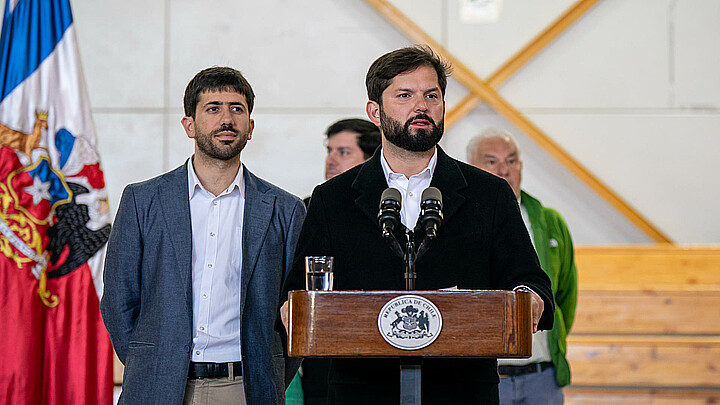Politics
Chile becomes seventh South American country to legalize same-sex marriage
The new initiative introduced amendments to the Civil Code, the Labor Code and the laws on the adoption of minors
December 7, 2021 2:59pm
Updated: December 24, 2021 1:22am
Chile joined Argentina, Brazil, Colombia, Ecuador, French Guyana and Uruguay as the seventh South American country to legalize same-sex marriage after lawmakers in both of Chile’s congressional chambers overwhelmingly approved the measure.
The bill was passed on Tuesday in the lower house of parliament – shortly after its passage in the Senate – by a vote of 82 to 20.
The initiative introduced amendments to the Civil Code, the Labor Code and the laws on the adoption of minors. It also recognizes the right for individuals to legally define their own gender identity.
Al fin!!! #MatrimonioIgualitarioChile 🌈🌈🌈 https://t.co/9nEKRy4lFZ
— urbatecto (@urbatecto) December 7, 2021
Chile previously approved civil unions between same-sex couples in 2015, but the benefits provided by the Civil Union Agreement were limited.
Ronaldo Jimenez, a leading Chilean gay rights activist, believes the vote shows how out of touch the political class has been on a broad range of social issues, including gay rights.
“The political class had been deaf, blind and mute regarding a series of matters on which civil society and ordinary Chileans had advanced,” he said.
But Chileans have actively pushed for social and economic reforms in recent years and the new law comes just two years after mass protests and riots shook the country in Oct. 2019, with protesters demanding better pensions, better education, and the dismantling of the economic system which led to what many economists refer to as Chile’s economic miracle.
The protests also led current President Sebastían Piñera to call for a plebiscite in which Chileans voted to draft a new constitution.
Piñera – who previously opposed same-sex marriage – came out in support of the recently passed law in June, urging Congress to prioritize legislation that would "guarantee this freedom and dignity to all people.”
"I think we should deepen the value of freedom, including the freedom to love and to form a family with a loved one. Also the value of the dignity of all relationships of love and affection between two people," he noted, surprising many of his conservative constituency.
Pundits believe the law could be one of the lasting legacies of his turbulent presidency.
But Piñera will sign the measure into law right as Chile faces one of the most polarizing presidential elections in recent history.
On December 19, conservative candidate José Antonio Kast will face 35-year-old left-wing former student union leader Gabriel Boric, who came in second with 25 percent of the vote after creating a wide coalition with left wing parties, including Chile's Communist Party.
Chile is now the 31st nation in the world to allow gay marriage, which is representative of a larger movement towards the acceptance of LGBT+ people across the globe.








